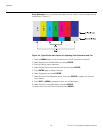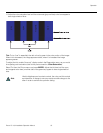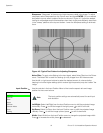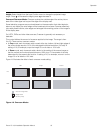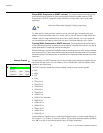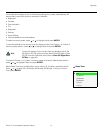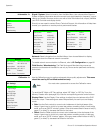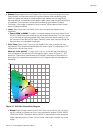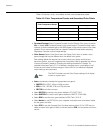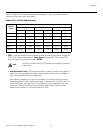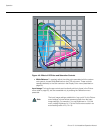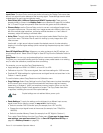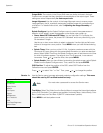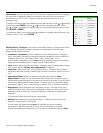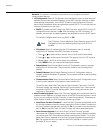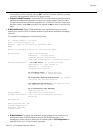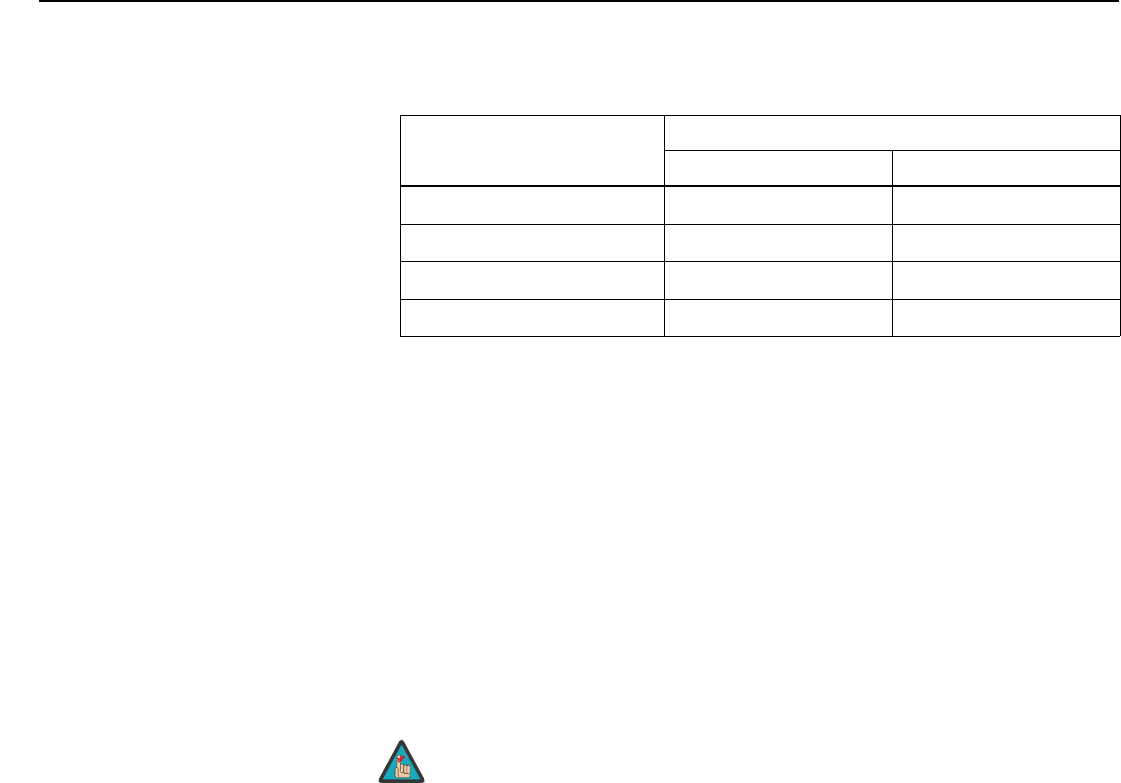
Operation
60 Runco LS-10d Installation/Operation Manual
PRE
L
IMINAR
Y
Table 4-2 lists the x- and y-coordinates for each color temperature preset.
• ConstantContrast: Select ConstantContrast from the Display Color menu to enable
(On) or disable (Off) ConstantContrast in the optical engine. ConstantContrast uses a
dynamic iris that modulates light to the DMD based on the actual content of the video
material. Runco recommends that you disable ConstantContrast before adjusting
Brightness, Contrast or other image settings.
• Color Gamut: Select Color Gamut from the Display Color menu to select a color
gamut (range) that may be different from the default color gamut.
Each setting defines the precise hue of each primary (red, green and blue) and
secondary (yellow, cyan and magenta) color component used to generate the millions
of colors produced in displays. Changing this setting relocates the “triangle” for
possible colors (see Figure 4-7). For example, changing the x/y coordinates for red
moves the color closer to either orange or violet, which in turn affects all displayed
colors having a red component.
• Auto automatically chooses the appropriate color gamut:
• SMPTE C for NTSC, 480i and 480p sources.
• EBU for PAL, SECAM, 576i and 576p sources.
• REC709 for all other sources.
•Select REC709 to use the color gamut defined in ITU-R BT.709-5.
•Select SMPTE-C to use the color gamut defined in SMPTE 170M-1999.
•Select EBU to use the color gamut defined in EBU Tech. 3213-E.
•Select Native to use REC709 for cyan, magenta, and yellow and uncorrected values
for red, green, and blue.
•Select PCE to use the Personal Color Equalizer feature of the LS-10d. PCE lets you
define a custom color gamut. Refer to the next section, PCE, for instructions on how to
do this.
Table 4-2. Color Temperature Presets and Associated Color Points
Color Temperature Preset
Associated x/y Values
xy
5500K 0.332 0.348
6500K 0.313 0.329
7500K 0.299 0.315
9300K 0.284 0.298
The DHD Controller uses the Color Gamut settings for all display
modes on a given input.
Note



